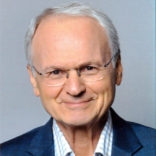President Obama spent his first term pushing from power long-standing Arab allies in Egypt and Tunisia, seeking to engage the now blood-soaked Syrian dictator Bashar al-Assad, pulling his punches against Iran’s nuclear program, and putting “daylight” between his Administration and Israel. Now for his second term, he has nominated for the highest posts bearing on the Middle East three figures who give the strongest indication we can expect much more of the same – John Kerry for State, Chuck Hagel for Defense and John Brennan for the CIA.
Kerry opposed Congress’ 2009 hold on appointing an ambassador to a regime which has subverted democracy in Lebanon and which has supported Hezbollah, the terror group that, until 9/11, had more American blood on its hands than any other. But that shouldn’t surprise – last September, Kerry was one of only 25 senators who refused to urge the European Union to designate Hezbollah a terrorist organization.
A leaked cable shows that, in February 2010, Kerry told Qataris that he supports Israeli withdrawal from the strategic Golan Heights, eastern Jerusalem and the West Bank. In April 2010, Kerry met with Assad and called Syria “an essential player in bringing peace and stability to the region.” The Washington Post even recently called Kerry a “prominent admirer” of Assad.
Kerry also stands apart from his senate colleagues in his weakness towards Iran. Last month, he was one of only 26 senators not to urge President Obama to reiterate his readiness to use military force against Iran if other measures fail to prevent Iran becoming a nuclear power. In April 2010, he was one of only 19 senators refusing to call for crippling sanctions upon Iran.
In respect to the Palestinian Authority (PA), Kerry favors neither pressure nor penalties for its failure to implement its Oslo commitments to end terrorism and the incitement to hatred and murder that feeds it. In 2007, he was one of only 21 senators not to oppose aid to and contacts with PA figures who “do not explicitly and unequivocally recognize Israel’s right to exist, renounce terror, and accept previous agreements.”
With Defense nominee Chuck Hagel, we fare inarguably worse. In 2008 he was described by a congressional aid as “solely responsible” for blocking an Iran sanctions bill. Like Kerry, he opposed Hezbollah’s designation by the EU as a terror outfit and favors indulging the PA. For example, in December 2005 he opposed applying presidential pressure on the PA to ban terrorist groups from Palestinian elections as required under Oslo.
But Hagel has exceeded Kerry by advocating direct U.S. negotiations with Hamas, a U.S. designated terrorist group committed in its charter to the destruction of Israel and the murder of Jews. And in 1998, he appeared to blame Israel for Palestinian terrorism saying, “Desperate men do desperate things when you take hope away. And that’s where the Palestinians are today.”
Which brings us to CIA nominee John Brennan, who refers to Jerusalem as Al-Quds, the Arabic name widely used by those who do not recognize Israel. Like Kerry and Hagel, Brennan whitewashes Hezbollah and wants to appease Iran and Hamas. In 2008 he blamed the bad relations between Iran and the U.S. not on the nature of the Iranian regime and its goals, but at least in large part on what he called “Iran-bashing,” which he darkly attributed to Washington’s deference to “short-term domestic political interests” – presumably, the Jews who oppose Iran developing nuclear weapons.
In other words, Brennan doesn’t seem to see the Iranian regime as a dangerous threat. In fact, he criticized the Bush Administration for continuing to pressure Iran. As for Hezbollah, he sees it as moderating and pragmatic, now that it “has members of parliament, in the cabinet; there are lawyers, doctors, others who are part of the Hezbollah organization.”
If Iran and Hamas sound no warning bells for Brennan, neither does radical Islam in general. It was Brennan who in 2009 publicly defended the Obama Administration’s policy of discarding basic, factual terms like ‘radical Islam,’ ‘Islamism,’ and ‘jihad’ in reference to the war being waged against America and its allies by Muslim extremists. Why? We do not “describe our enemy as jihadists or Islamists,” asserted Brennan, “because jihad is holy struggle, a legitimate tenet of Islam meaning to purify oneself of one’s community” – a fashionable spin on a doctrine which has historically denoted the use of force to extend and perpetuate the dominion of Islam over non-Muslims.
With President Obama and his three choices who might supervise U.S. foreign defense and intelligence policy towards the Middle East, we can expect more ‘engagement’ with radical Islamic and jihadist movements, several of which have ascended to power during Obama’s first term, no deterring of Iran from crossing the nuclear threshold and more ‘daylight’ between Washington and Jerusalem.
Morton A. Klein is national president of the Zionist Organization of America (ZOA). Dr. Daniel Mandel is director of the ZOA’s Center for Middle East Policy.
The New York Jewish Week brings you the stories behind the headlines, keeping you connected to Jewish life in New York. Help sustain the reporting you trust by donating today.





